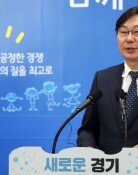N.Korean Diplomats Go Crazy for English, Too
N.Korean Diplomats Go Crazy for English, Too
Posted March. 26, 2008 03:03,
Park Gil Yon (65), North Korean ambassador to the United Nations, is set to return to his home country soon, ending his almost 20-year term in the U.S. Park served as chief representative for the North Korean U.N. mission from February 1985 through 1996. In 2001, he returned to New York, where the U.N. is headquartered, as ambassador to the U.N.
What sort of lives do North Korean diplomats, including Ambassador Park, lead in the U.S.? Sources in the U.S. provided a glimpse into how they lived in New York, the heart of capitalism as well as the land of North Koreas sworn enemy.
Park and his family are reported to have led a moderate living. Instead of going shopping in glittering shopping districts in New York, they went Chinatown in Queens to purchase inexpensive daily necessities.
North Korean diplomats live together in an apartment building on Roosevelt Island populated by working class people, said one diplomatic source. They use vans to commute in order to save embassy operation expenses and collectively purchase necessities, he added.
Among North Korean missions around the world, the permanent mission of North Korea to the United Nations is reportedly the only mission the North Korean government pays for diplomats living expenses.
North Koreas near-failed economy has made it customary that diplomats residing in foreign countries earn their own living expenses except for minimum operating costs. Because of this, North Korean diplomats in Latin American and Southeast Asian countries have frequently been caught involved in contraband trade.
North Korean officials working at the permanent mission to the U.N. need to get permission from the U.S. State Department when they travel 25 miles, or about 40 kilometers, away from its embassy. In addition, New York, the worlds most expensive city, makes the experience a special treat from the North Korean government.
Staffers in the permanent mission get monthly salaries that range from 300 to 600 dollars, depending on their position.
However, that amount of money is not enough to live off in New York. To eke out a living, they reportedly eat at fast food restaurants nearby the U.N. headquarters and spend their spare time fishing in the East River Park.
There are also rumors that some Korean-Americans who sympathize with North Korea have financially supported North Korean diplomats.
One source well-informed about the North Koreans said, If past practice is any guide, a farewell party for Ambassador Park will be held in New York and funds will be raised for him. The source added, Park, in turn, will purchase presents for North Korean leaders with the money.
Despite financial difficulties, some are dedicated to their childrens English education, according to sources.
One North Korean diplomats child has recently participated in a language course provided by a noted university in Manhattan. Another diplomat sent his children to a private school rather than a public school that provides free education.
Given tuition fees of celebrated private schools amount to 20,000 to 30,000 dollars a year, for those who hail from one of the poorest nations on earth, it is a bold decision to send their children to these schools.
North Korean diplomats are striving to give their children an English education because they want them to become diplomats and work in the U.S., the most sought-after foreign country. In doing so, loyalty to the party as well as English proficiency is a must.
Its a well-known fact that the two seasoned diplomats covering the U.S., Vice Foreign Minster Kang Sok Ju and Kim Kye Kwan, are the most powerful figures in North Korean diplomacy. Lee Keun, director of the Foreign Ministry`s U.S. department and deputy representative to the six-party talks, has been negotiating just with the U.S. for 15 years since he worked at the U.S. department in 1993.
One official who stays in touch with North Korean diplomats said, A good command of English is an important asset that testifies his or her competitiveness. Those who enjoy the luxury of working in the U.S. for about five years make the most of the opportunity to teach their children English.
triplets@donga.com kong@donga.com







